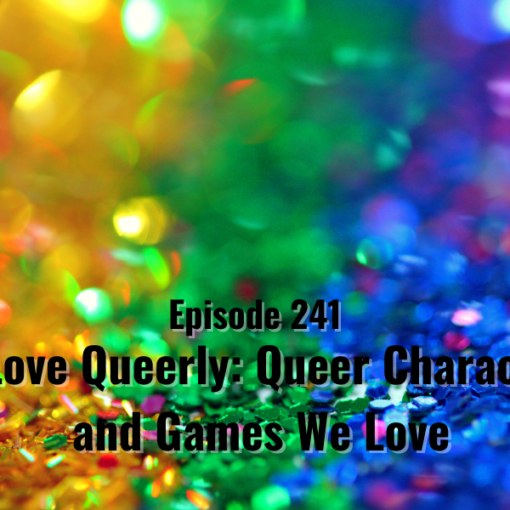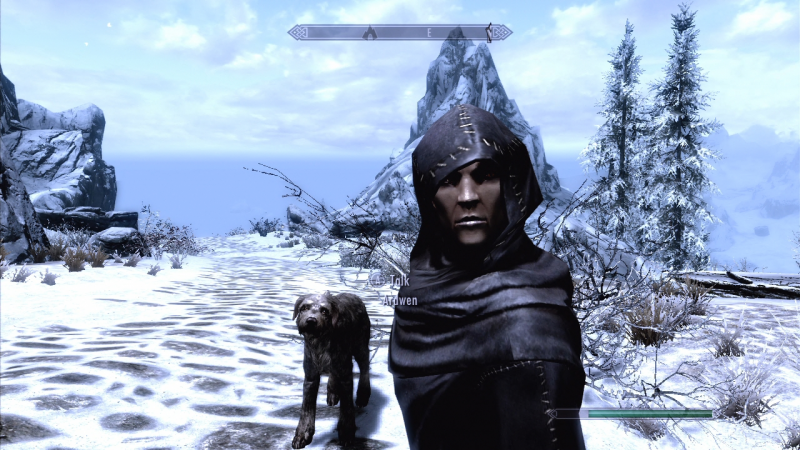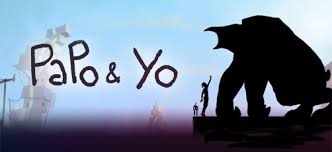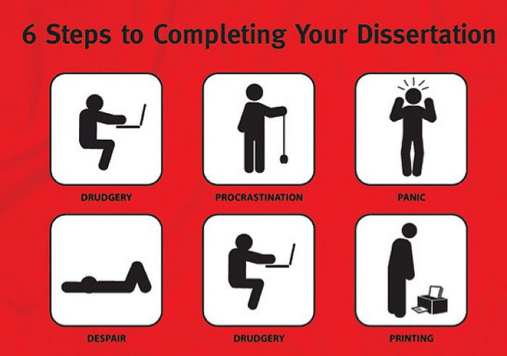Social media hubs around GamerGate — both sides — have been in rare form this week, with much discussion ignited anew. It’s not surprising, really; a lot’s happened lately, with controversies around Reddit and GamerGate-related subs, GDC and PAX East and the relaunch of Offworld. Yesterday, however, things took a surprising turn when Leigh Alexander, cited by some as one of the “main catalysts” of GamerGate, and certainly a critic, was reportedly temporarily suspended from Twitter. As far as I can see, not much was confirmed, but suspicion rose immediately that Alexander’s account was the subject of mass reporting for spam, harassment, or some other reason, and she fell victim to a temporary suspense, but without more information, of course, I can’t say.
Whatever happened, this is an interesting development in light of the discussion around Randi Harper’s ggautoblocker, a tool designed to identify possible GG supporters by looking at several key leaders of the discussion and who follows them. Some have called the tool censorship, some call it a blacklist, but others say it’s simply handy in helping filter online space to remove noise.
The suspension of Alexander versus the discussions of ggautoblocker as a blacklist — these two events serve as a fascinating lens on voices in digital spaces, ideas of censorship and silencing. How Twitter reacts to reports, and what creates action on the part of Twitter’s support team is also ground rife for discussion, but without more information on what happened, that’s outside of the scope of my exploration today.
Since the main discussion seems to be centered around platform, voice, blacklisting, and erasure, let’s start there. In the vast space of the digital realm, anyone can have a voice — that’s one of the charms of the ‘net, as well as one the horrors. Anyone (with access) can create a platform, grab a social media account, post videos, and yell from a digital rooftop. Sure, maybe no one will hear you, but you have a platform, unless that platform is somehow taken away from you.
When it comes to social media, the platform can be removed due to violations, real or perceived, of the terms of service. Now, social media services are notoriously uneven in making and enforcing their policies, and the logic behind actions, or lack thereof, can be mystifying, which adds an additional splash of fuel to the fire of Leigh Alexander’s brief Twitter suspension yesterday. From my investigations this morning, there were no links to violations that I’d seen, hence the rumors yesterday that it was a targeted series of reports. If that’s the case — if a group of people mobilized in an effort to remove Leigh Alexander’s voice from Twitter — and that’s silencing, pure and simple, the removal of a platform. A voice. That’s how it was being discussed, as well, with remarks like, “where’s your megaphone now?”

Twitter is already rife with instances of erasure and misinformation; there are fake accounts created all the time, despite a murky overlap with Twitter terms on creating misleading profiles (in fact, they’ve been made for Alexander; there’s at least one up now), and people are misquoted constantly, words twisted and intent shifted, sometimes by accident, and sometimes not. Old tweets surface years later, out of context, and are used as weapons. These attempts to control or even erase a narrative are common, especially right now, during what Zoe Quinn so aptly termed a “keyboard war” the other day. Slowly, opponents are working to attempt to erase Alexander, to remove her platforms, her access, and by remixing her words to create new narratives. That it fails isn’t the issue. It’s the attempt that’s worth discussing, I think.
Part of why things have grown so heated recently is the upsurge of the ggautoblocker, and with it discussions of free speech. There is some reported frustration because some people have reportedly been autoblocked by the tool even when they claim they don’t support GamerGate or participate in the discussions — I cannot verify, because I have not looked much at the list, nor used the tool, but if that’s the case, I can see how that would be frustrating. However, one person using a blocker does not remove anyone’s platform. A thousand people using a blocker doesn’t, either. The platform still exists, so long as access is not removed. The person using the tool has simply chosen to ignore some voices for their own reasons — something that is well within their rights. The blocked individual has not been silenced, only ignored. The difference is vast.
But is it a blacklist? I suppose it depends. The only privilege being denied members on the list is the privilege of interacting with some individuals on Twitter. What are they losing? I suppose that depends on what happens it it. If it is used to remove access, threaten livelihood… then sure, I suppose it is. But here’s where things grow muddy. One of the overriding narratives of GamerGate I’ve seen is that real gamers support it, devs support it, the industry supports it — it’s just so-called social justice warriors and some media who are painting a poor image. If that’s the case, how does this function as a blacklist? I’m all for gray areas, but I feel this is approaching mutual exclusivity. But unless some action is taken based on that list? It’s the equivalent of looking around a room and saying, “I’m not going to engage with those people over there, la la la la.” And that’s well within someone’s rights. No one has to listen on social media, and no one else has the right to demand they do.
Because the list is public, however, I do feel for anyone who might get caught on the list who shouldn’t be. But it’s still not silencing, it’s not censorship; it’s just a tool and one that, for now, serves as a set of earplugs (eye plugs?).
I spoke with a friend, while I was mulling this all over, who is known in one of my circles as the queen of blocking. Block early, block often is her philosophy, at least as it pertains to Facebook. She’s blocked hundreds of people for saying things she finds questionable (or whatever reason she chooses). Why? I’m paraphrasing here, but she said while she can’t block some people from her life, she can block them from her online space. Her Facebook wall is not a democracy.
Neither is someone else’s Twitter feed, after all. You have the right to talk; you don’t have the privilege of talking in someone’s face when they don’t want you to. They can walk away. They can tune you out.

If this all seems obvious, well, that’s because it is. But because the sides — and I hate referring to “sides,” though that’s where we are — are escalating conflicts of late, there’ve been some fallouts worth noting, not least the outing and harassment of trans individuals in the name of “investigating corruption.” A particularly devastating reveal was posted recently, and the “report,” with its comments, is horrifying to witness. Not because it’s “insensitive,” but because the trans community is at particular risk of hate-based violence. This isn’t investigation. This isn’t armchair detective work, and it’s not arguments on social media about who’s right about the video games media or who’s harassing whom. It’s the kind of thing that can get someone killed, full stop.
It’s also a particularly horrifying example of the depth of transphobia in some communities. Click for fullsize images, but be warned — the content is disturbing.
I don’t want to speak for anyone. I don’t want to speak for Leigh Alexander, or for anyone on any side of any argument. They are capable of speaking for themselves. I simply want to report what I see, and what I think, and I’d like to discuss real issues of access and debate. I see less and less of that anymore. I want to say that there’s something good coming from all of this, since last fall; we’re seeing some really amazing work in games, and developers who may be listening
This week, I’ve been having a good talk with a self-labeled GamerGate supporter, someone who walked in on a conversation I was having that was less than fruitful. It was nice to actually discuss issues around the games media with someone who wanted to talk back. It doesn’t happen that often these days, at least not for me; the sides are so galvanized after long months of back and forth that discourse fell by the wayside even for some who were actually interested in it. One thing he told me he wanted from gaming media was for information to be framed in a way that allowed readers/viewers/followers to draw their own conclusions. He said a lot more — we’ve been talking for a few days, and I hope we keep talking. I like some of what he has to say; I disagree with other parts, but hey. That’s how things work.
But it’s not usually like that. I say something and a couple of people crop up in my Twitter mentions, slinging condescending remarks and links like I’m incapable of finding information on my own. They’re aggressive, challenging, sometimes downright insulting. And this is the light side of things. I haven’t been harassed. No one’s threatened me. I try not to get into those. Sometimes, I fail; sometimes I snap back, like I’ve seen other people on my “side” do. It’s a natural human reaction. But I’d rather have those reasoned discussions, because I think there’s always work to do to make things better. Our industry, this thing we love, it’s always changing. Everything around it is changing, and we’re smart. We’re savvy. Surely smart enough to do better. Surely smart enough to find common ground and move on from the places we can’t, instead of challenging and erasing and misrepresenting.
Aren’t we better? Aren’t we?





6 thoughts on “The Great Debate: Silencing in Digital Spaces”
Not helpful in the grander debate and finding middle ground, but “The whole man-hating radfem thing seems to be so attractive to m2f trannies” is a pretty epically awful summation of inter-feminist politics. That’s like “Yeah, those Cardinal fans are always talking about the Cubs. They must really like them!”
That’s the main problem I have with arguing with GamerGators, they don’t understand most of the things that they’re arguing, whether it’s rules regarding ethics or the very remedial basics of feminism are, and I don’t know how to bridge that gap.
Completely agreed — there’s a lack in nuance and it’s hard to discuss when everything is painted in such broad strokes.
Also it reminds me of me when I made all the same insane reactionary arguments that they did back when I was like 16 (back when I TOTALLY would have supported GamerGate) and I know how insulated they are, and how I assumed everyone else was strategically planning as much as I was so I had to stay a step ahead…there was no reaching me, I had to learn on my own through experience.
Also fair point… god, I would have, too. I’d have bought in. But so many are more than 16. What then?
I’m so glad to hear more and more people talk about how they’d have been sucked in too, especially other women…it makes me wonder what specific aspect of gamer culture leads people to be that way.
But amyway, I still sincerely hope that even the super entrenched people who are adults will still eventually have a new experience set that they go through that pulls them out of it…but I suppose also, as you say, it doesn’t help if we then respond with unreasonableness. We should respond with patience.
This gets into the whole “I am not your educator”/”I am not your teachable moment” territory too, in terms of how much anger it’s ok to have and when it becomes detroment, and it’s funny because I come down on the nicer side of that in terms of real world interaction with my identities, but when it comes to talking about gaming I have a much shorter fuse. I suppose that’s a common ground with them, gaming as a safe space that we flip out if threatened.
Good article, btw! And yay for getting the weird transphobia angle so front and center, I’d noticed that cropping up before but I thought I was just being hyper aware of it.
A GG-supporter who engaged me this week (in a very bizarre conversation) said that GG was really about respect, and that it would have ended quickly if gamers got respect. I wrote it off in the moment, but the more I think about it, I do understand. I mean, I grew up as a gamer, a nerd, and I’m still a big ol’ nerd and a fat woman with kids and I get it. I know what it’s like to feel like you’re just not quite in the main room, and how it feels when the media shits on you. I think there are plenty who see “their” media shitting on them. So I get it. It’s part of the divergence, though. Anyway, I have a lot of thoughts on that — I’m working on a piece centered on that idea.
As for the transphobia, when I saw what was happening I couldn’t not. It’s hard to find a way to even talk about it that isn’t adding fuel to the fire, but I think we ABSOLUTELY HAVE GOT TO TALK ABOUT IT, and show it, and let people see what’s happening. But talking about it is also engaging and it breaks my heart to think I might be even a small hand in that.